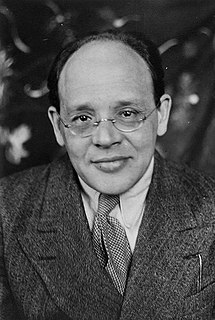 W
WIsaac Emmanuilovich Babel was a Russian writer, journalist, playwright, and literary translator. He is best known as the author of Red Cavalry, Story of My Dovecote and The Odessa Tales—stories from the life of Jewish gangsters from Odessa led by Benya Krik. He has been acclaimed as "the greatest prose writer of Russian Jewry". Babel was arrested by the NKVD on 15 May 1939 on fabricated charges of terrorism and espionage, and executed on 27 January 1940.
 W
WManuel Moreno Barranco was a Spanish novelist and short-story writer, who suffered a violent death at the prison of Jerez de la Frontera in 1963.
 W
WDavid Bergelson was a Yiddish language writer born in the Russian Empire. He lived for a time in Berlin, Germany before moving to the Soviet Union following the Nazi rise to power in Germany. He was a victim of the post-war antisemitic "rootless cosmopolitan" campaign and one of those executed on the Night of the Murdered Poets.
 W
WAnicius Manlius Severinus Boëthius, commonly called Boethius, was a Roman senator, consul, magister officiorum, and philosopher of the early 6th century. He was born about a year after Odoacer deposed the last Western Roman Emperor and declared himself King of Italy. Boethius entered public service under Ostrogothic King Theodoric the Great, who later imprisoned and executed him in 524 on charges of conspiracy to overthrow him. While jailed, Boethius composed his Consolation of Philosophy, a philosophical treatise on fortune, death, and other issues, which became one of the most popular and influential works of the Middle Ages. As the author of numerous handbooks and translator of Plato and Aristotle, he became the main intermediary between Classical antiquity and following centuries.
 W
WRobert Brasillach was a French author and journalist. Brasillach is best known as the editor of Je suis partout, a nationalist newspaper which came to advocate various fascist movements and supported Jacques Doriot. After the liberation of France in 1944 he was executed following a trial and Charles de Gaulle's express refusal to grant him a pardon. Brasillach was executed for advocating collaborationism, denunciation and incitement to murder. The execution remains a subject of some controversy, because Brasillach was executed for "intellectual crimes", rather than military or political actions.
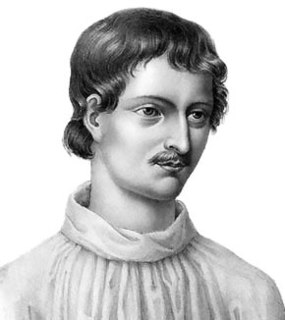 W
WGiordano Bruno was an Italian Dominican friar, philosopher, mathematician, poet, cosmological theorist, and Hermetic occultist. He is known for his cosmological theories, which conceptually extended the then-novel Copernican model. He proposed that the stars were distant suns surrounded by their own planets, and he raised the possibility that these planets might foster life of their own, a philosophical position known as cosmic pluralism. He also insisted that the universe is infinite and could have no "center".
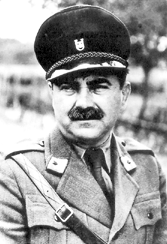 W
WMile Budak was a Croatian politician and writer best known as one of the chief ideologists of the Croatian fascist Ustaša movement, which ruled the Independent State of Croatia during World War II in Yugoslavia from 1941–45 and waged a genocidal campaign of extermination against its Roma and Jewish population, and of extermination, expulsion and religious conversion against its Serb population.
 W
WSaint Edmund Campion, S.J.,, was an English Catholic Jesuit priest and martyr. While conducting an underground ministry in officially Anglican England, Campion was arrested by priest hunters. Convicted of high treason, he was hanged, drawn and quartered at Tyburn. Campion was beatified by Pope Leo XIII in 1886 and canonised in 1970 by Pope Paul VI as one of the Forty Martyrs of England and Wales. His feast day is celebrated every 1st of December.
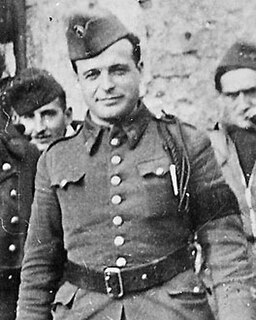 W
WJean Cavaillès was a French philosopher and logician who specialized in philosophy of mathematics and philosophy of science. He took part in the French Resistance within the Libération movement and was arrested by the Gestapo on 17 February 1944 and shot on 4 April 1944.
 W
WAugust Cesarec was a Croatian writer and left-wing politician.
 W
WAndré Marie Chénier was a French poet of Greek and Franco-Levantine origin, associated with the events of the French Revolution of which he was a victim. His sensual, emotive poetry marks him as one of the precursors of the Romantic movement. His career was brought to an abrupt end when he was guillotined for supposed "crimes against the state", just three days before the end of the Reign of Terror. Chénier's life has been the subject of Umberto Giordano's opera Andrea Chénier and other works of art.
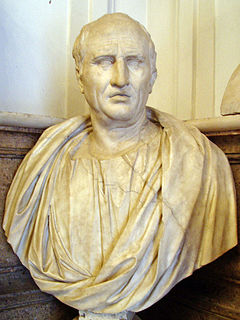 W
WMarcus Tullius Cicero was a Roman statesman, lawyer, scholar and Academic Skeptic who played an important role in the politics of the late Roman Republic and in vain tried to uphold republican principles during the crises that led to the establishment of the Roman Empire. His extensive writings include treatises on rhetoric, philosophy and politics, and he is considered one of Rome's greatest orators and prose stylists. He came from a wealthy municipal family of the Roman equestrian order, and served as consul in 63 BC.
 W
WBekir Vaap oğlu Çoban-zade was a Crimean Tatar poet and professor of Turkic languages who was one of the victims of the Great Purge.
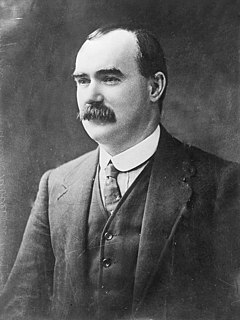 W
WJames Connolly was an Irish republican and socialist leader.
 W
WMirjaqip Dulatuli (Kazakh: Міржақып Дулатұлы, Mirjaqyp Dýlatuly; Russian: Миржакып Дулатов, also known as Mir Yakub Dulatov, was a Kazakh poet, writer and one of leaders of Kazakh nationalist Alash Orda government. He also is known to have used the pen names Madiyar and Arghyn.
 W
WPhilippe François Nazaire Fabre d'Églantine, commonly known as Fabre d'Églantine, was a French actor, dramatist, poet, and politician of the French Revolution.
 W
WItzik Feffer, also Fefer was a Soviet Yiddish poet executed on the Night of the Murdered Poets during Joseph Stalin's purges.
 W
WFeng Keng was a poet and author who, following her execution became known as one of the Five Martyrs of the League of Left-Wing Writers. Feng was born in Guangdong province, China. Her mother was a teacher.
 W
WJulius Fučík was a Czechoslovak journalist, critc, writer, an active member of Communist Party of Czechoslovakia, and part of the forefront of the anti-Nazi resistance. He was imprisoned, tortured, and executed by the Nazis.
 W
WFederico del Sagrado Corazón de Jesús García Lorca, known as Federico García Lorca, was a Spanish poet, playwright, and theatre director.
 W
WOlympe de Gouges was a French playwright and political activist whose writings on women's rights and abolitionism reached a large audience in various countries.
 W
WNikolay Stepanovich Gumilyov was an influential Russian poet, literary critic, traveler, and military officer. He was a cofounder of the Acmeist movement. He was husband of Anna Akhmatova and father of Lev Gumilev. Nikolay Gumilyov was arrested and executed by the Cheka, the secret Soviet police force, in 1921.
 W
WMaurice Halbwachs was a French philosopher and sociologist known for developing the concept of collective memory. Halbwachs also contributed to the sociology of knowledge with his La Topographie Legendaire des Evangiles en Terre Sainte; study of the spatial infrastructure of the New Testament. (1951)
 W
WHu Yepin was a Chinese writer, poet, and playwright. A prominent member of the League of Left-Wing Writers, he was one of the Five Martyrs of the Left League executed in February 1931 by the Kuomintang government.
 W
WMyroslav Irchan was born Andriy Babiuk on July 14, 1897 to a poor peasant family in the village of P'yadyky, Kolomyia in Ivano-Frankivsk Oblast. In 1914, he graduated from the Teacher's Seminary in Lviv. He was a Ukrainian storywriter and playwright who moved for a time from Europe to North America, and continued to write about his European experiences while in the new world. He was also editor of a number of publications in Europe and Canada.
 W
WVíctor Lidio Jara Martínez was a Chilean teacher, theater director, poet, singer-songwriter and communist political activist tortured and killed during the dictatorship of Augusto Pinochet. He developed Chilean theater by directing a broad array of works, ranging from locally produced plays to world classics, as well as the experimental work of playwrights such as Ann Jellicoe. He also played a pivotal role among neo-folkloric musicians who established the Nueva Canción Chilena movement. This led to an uprising of new sounds in popular music during the administration of President Salvador Allende.
 W
WBruno Jasieński pronounced [ˈbrunɔ jaˈɕeɲskʲi], born Wiktor Bruno Zysman, was a Polish poet, novelist, playwright, Catastrophist, and leader of the Polish Futurist movement in the interwar period. Jasieński was also a communist activist in Poland, France and the Soviet Union, where he was executed during the Great Purge. He is acclaimed by members of the various modernist art groups as their patron. An annual literary festival Brunonalia is held in Klimontów, Poland, his birthplace, where one of the streets is also named after him.
 W
WAhmad Javad was an Azerbaijani poet. Javad is most remembered for writing the words of the National Anthem of Azerbaijan, which was used during the Democratic Republic of Azerbaijan between 1918–1920, and which has been reinstated now that Azerbaijan has regained its freedom, since 1991, and another poem named Çırpınırdı Qaradəniz.
 W
WMichalis Karaolis was born in the village of Palaichori Oreinis of Pitsilia, Cyprus. He was a government clerk and a member of EOKA. He was the first to be sentenced to death and hanged alongside Andreas Dimitriou on 10 May 1956.
 W
WIvan Ivanovich Kataev was a Soviet novelist, short story writer, and journalist.
 W
WIvan Goran Kovačić was a Croatian poet and writer.
 W
WLeyb Moiseyevich Kvitko was a prominent Yiddish poet, an author of well-known children's poems and a member of the Jewish Anti-Fascist Committee (JAC). He was one of the editors of Eynikayt and of the Heymland, a literary magazine. He was executed in Moscow on August 12, 1952 together with twelve other members of the JAC, a massacre known as the Night of the Murdered Poets. Kvitko was rehabilitated in 1955.
 W
WAbdulla Latif-zade was a Crimean Tatar literary critic, poet, writer, and translator who was executed during the purge of Crimean Tatar intellectuals in the Stalin era.
 W
WLi Shuoxun is a Chinese communist martyr. He joined the Chinese Communist Party in 1924, and went underground after the Kuomintang (KMT)'s massacre of communists in 1927. In 1931 he went to Hainan, was caught by the KMT and executed. He is now commemorated as a revolutionary martyr.
 W
WThomas Stanislaus MacDonagh was an Irish political activist, poet, playwright, educationalist and revolutionary leader. He was one of the seven leaders of the Easter Rising of 1916, a signatory of the Proclamation of the Irish Republic and Commandant of the 2nd Battalion, Dublin Brigade of the Irish Volunteers, which fought in Jacob's biscuit factory. He was executed for his part in the Rising at the age of thirty-eight.
 W
WRamiro de Maeztu y Whitney was a prolific Spanish essayist, journalist and publicist. His early literary work adscribes him to the Generation of '98. Adept to nietzschean and social darwinist ideas in his youth, he became close to Fabian Socialism and, later, to Distributism and Social corporatism during his spell as correspondent in London, from where he chronicled the Great War. During the years of the Primo de Rivera dictatorship he served as Ambassador to Argentina. A staunch militarist, he became at the end of his ideological path one of the most prominent Far-right theorists against the Second Republic, leading the reactionary voices calling for a military coup. Member of the cultural group Acción Española, he spread the concept of "Hispanidad" (Spanishness). Imprisoned by Republican authorities after the outbreak of the Spanish Civil War, he was killed by leftist militiamen during a saca in the midst of the conflict.
 W
WPeretz Davidovich Markish was a Soviet/Russian Jewish poet and playwright who wrote predominantly in Yiddish.
 W
WSir Thomas More, venerated in the Catholic Church as Saint Thomas More, was an English lawyer, social philosopher, author, statesman, and noted Renaissance humanist. He also served Henry VIII as Lord High Chancellor of England from October 1529 to May 1532. He wrote Utopia, published in 1516, which describes the political system of an imaginary island state.
 W
WPedro Muñoz Seca was a Spanish comic playwright. He was one of the most successful playwrights of his era. He wrote approximately 300 dramatic works, both sainetes and longer plays, often in collaboration with Pedro Pérez Fernández or Enrique García Álvarez. His most ambitious and best known play is La venganza de Don Mendo ; other major works include La barba de Carrillo and Pepe Conde (1920).
 W
WNefʿī (نفعى) was the pen name of an Ottoman Turkish poet and satirist whose real name was ʿÖmer (عمر).
 W
WNikolay Makarovich Oleynikov was a Russian editor, avant-garde poet and playwright who was arrested and executed by the Soviets for subversive writing. During his writing career, he also used the pen names Makar Svirepy, Nikolai Makarov, Sergey Kravtsov, NI chief engineer of the mausoleums, Kamensky and Peter Shortsighted.
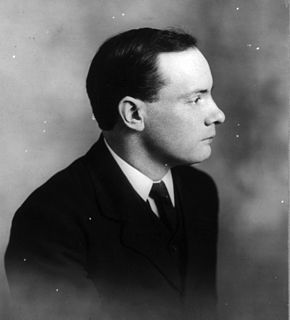 W
WPatrick Henry Pearse was an Irish teacher, barrister, poet, writer, nationalist, republican political activist and revolutionary who was one of the leaders of the Easter Rising in 1916. Following his execution along with fifteen others, Pearse came to be seen by many as the embodiment of the rebellion.
 W
WJoseph Mary Plunkett was an Irish nationalist, republican, poet, journalist, revolutionary and a leader of the 1916 Easter Rising. Joseph Mary Plunkett was married to his childhood sweetheart Grace Gifford in 1916, 7 hours before he was killed.
 W
WSir Walter Raleigh , also spelled Ralegh, was an English landed gentleman, writer, poet, soldier, politician, courtier, spy and explorer. He was a cousin of Sir Richard Grenville and younger half-brother of Sir Humphrey Gilbert. He is also well known for popularising tobacco in England. Raleigh was one of the most notable figures of the Elizabethan era.
 W
WJesús Requejo San Román (1880-1936) was a Spanish Catholic militant, theorist of society and politician; the Catholic Church declared him a martyr and a candidate for sainthood. He was locally known in the provinces of Zamora and Toledo for his activity in education, charity and agrarian syndicalism. His key work, Principios de Orientación Social, made some moderate impact among Spanish Catholic intellectuals of the mid-1930s. Politically he evolved from centre-left to extreme right: initially Requejo supported the Romanonista dynastic Liberalism, then he turned towards accidentalist Acción Católica, and finally he joined Carlism. His career climaxed in the mid-1930s; since 1934 he headed the provincial Carlist structures in Toledo and in 1936 he served as a Carlist deputy to the Cortes.
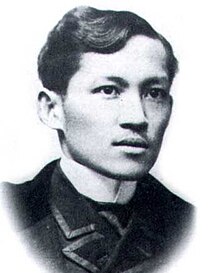 W
WJosé Protasio Rizal Mercado y Alonso Realonda was a Filipino nationalist and polymath during the tail end of the Spanish colonial period of the Philippines. He is tagged as the national hero of the Filipino people. An ophthalmologist by profession, Rizal became a writer and a key member of the Filipino Propaganda Movement, which advocated political reforms for the colony under Spain.
 W
WRou Shi was a prominent left-wing Chinese writer and member of the May Fourth Movement. Executed on either 7 or 8 February 1931 by the Kuomintang government in Shanghai for his pro-Communist activities, he is considered one of the Five Martyrs of the League of Left-Wing Writers.
 W
WLucius Annaeus Seneca, also known as Seneca the Younger, was a Hispano-Roman Stoic philosopher, statesman, dramatist, and—in one work—satirist from the Silver Age of Latin literature.
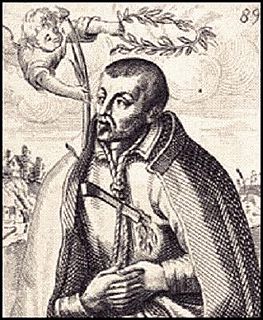 W
WRobert Southwell, also Saint Robert Southwell, was an English Roman Catholic priest of the Jesuit Order. He was also a poet, hymnodist, and clandestine missionary in Elizabethan England.
 W
WAlexander Ignatyevich Tarasov-Rodionov was a Russian/Soviet writer, best known for his novel "Chocolate" which at the time of publication was acclaimed as a tale of heroic self-sacrifice but has since been criticized as a justification for the Red Terror.
 W
WVladislav Vančura was an important Bohemian (Czech) writer active in the 20th century, who was killed by the Nazis. He was also active as a film director, playwright and screenwriter.
 W
WNikola Yonkov Vaptsarov was a Bulgarian poet, communist and revolutionary. Working most of his life as a machinist, he only wrote in his spare time. Despite the fact that he only ever published one poetry book, he is considered one of the most important Bulgarian poets. Because of his underground communist activity against the government of Boris III and the German troops in Bulgaria, Vaptsarov was arrested, tried, sentenced and executed the same night by a firing squad.